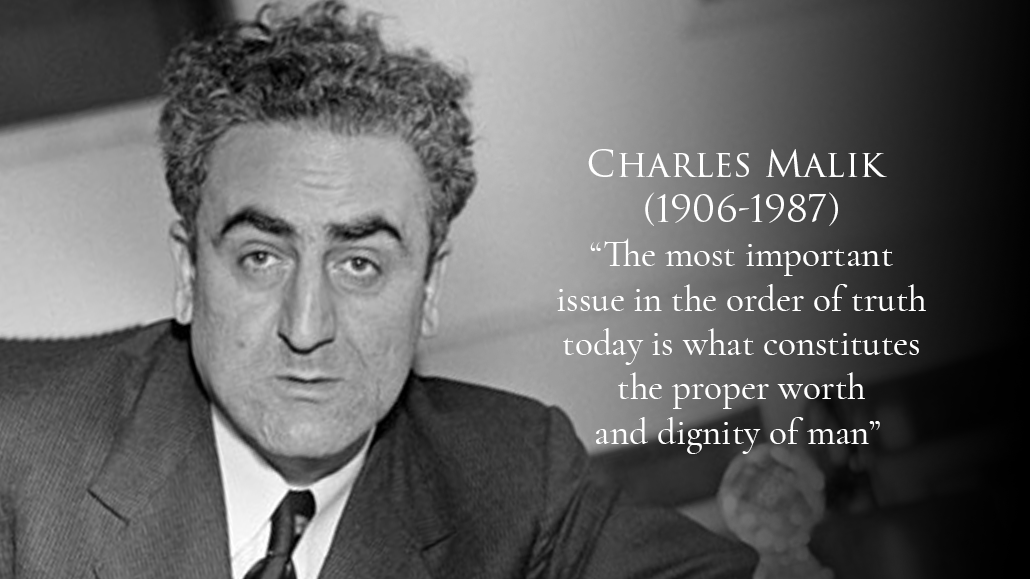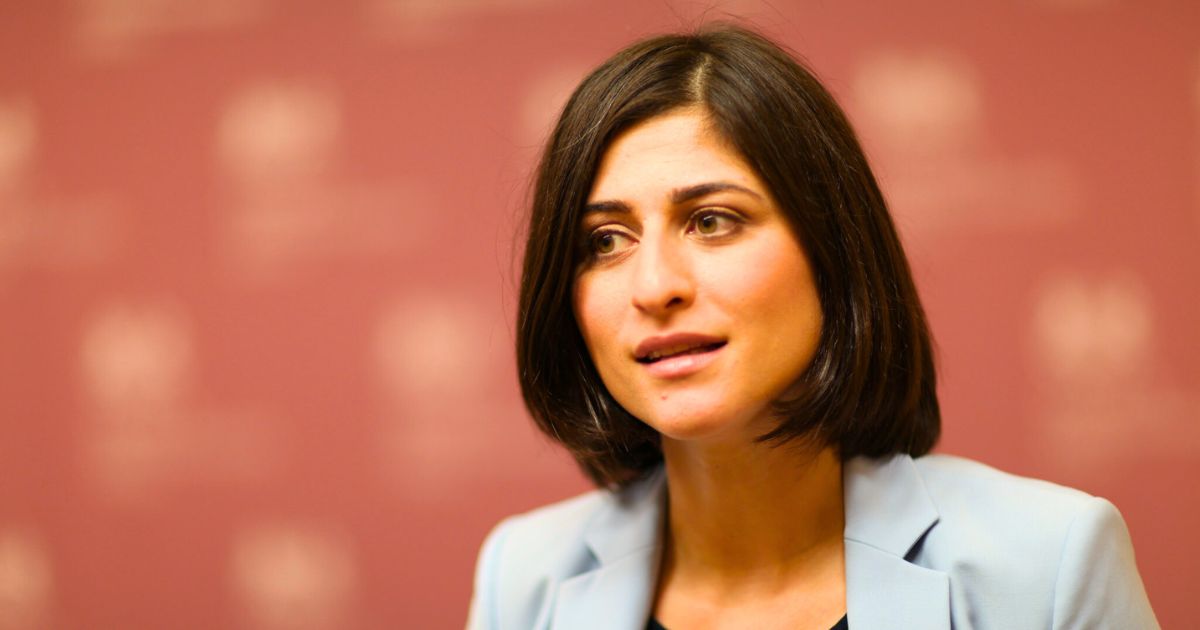Lebanese people are famous for shining in the world. Some of which are appreciated worldwide and others are rarely remembered or cherished in our own country.
Charles Malik, the Lebanese academic, philosopher, and most importantly Lebanon’s first ambassador to the UN, is a perfect example of the forgotten ones whom we care to give tribute to.
Born in Bittiram, North Lebanon, in 1906, Malik was the son of Dr. Habib Malik and the great-nephew of the renowned author Farah Antun.
He went to the American Mission School, now Tripoli Evangelical School for Girls and Boys, and then to the American University of Beirut, where he graduated with a degree in mathematics and physics.
But philosophy is what caught his attention after he moved to Cairo in 1929. He then pursued a doctorate in philosophy at Harvard University in the US under Alfred North Whitehead, including a year of study under Martin Heidegger in Germany.
After getting his Ph.D. in 1937 and teaching in various universities in the US, Malik returned to the American University of Beirut where he founded the Philosophy Department.
He remained in his position until 1945 when he was appointed to be the Lebanese Ambassador to the United States and the United Nations.
Serving as a rapporteur for the Commission of Human Rights in 1947, Malik’s philosophical side didn’t go unnoticed as the Four Basic Principles he proposed exhibit this side of him.
These principles accentuate important points:
- First, the individual inherently comes before any national or cultural group to which he may belong;
- Second, a person’s mind and conscience are his/her most sacred and inviolable possessions;
- Third, any social pressure from the state, religion, or any other group aimed at coercing consent is automatically wrong;
- Fourth, since groups and individuals may be right or wrong, the person’s conscience is the competent judge.

In 1948, Malik was elected president of the Economic and Social Council (ECOSOC), the Commission of Human Rights’ parent body.
Later that year, he chaired the third session of the UN General Assembly, which presided over the passage of the Universal Declaration of Human Rights (UDHR), and it was largely because of his diplomatic skills that passed unanimously with only eight abstentions.
After a three-year absence, he returned in 1958 as a president of the thirteenth session of the UN General Assembly.
Later in 1960, Malik returned to his academic career. He taught in the USA at Harvard, at the American University in Washington, DC, at Dartmouth College, at Notre Dame University in Indiana, and at the Catholic University of America in Washington, DC.
He eventually returned to his chair in Philosophy at the American University of Beirut and was appointed Dean of Graduate Studies. Adding to that, Malik was awarded 50 honorary degrees.
Previous to that, Malik was appointed to the Lebanese Cabinet. He was Minister of National Education and Fine Arts in 1956 and 1957, and Minister of Foreign Affairs from 1956 to 1958. While a Minister, he was elected to the National Assembly in 1957 and served there for three years.
Malik passed away on December 28, 1987. His papers are housed in Notre Dame University in Lebanon, where 200 of his papers and books are stored, and in the Library of Congress in Washington D.C., where his heritage occupies 44 meters of shelves in the special collection area.
And now, we leave you with one of his many important messages on Lebanon, human rights, and freedom.
“Nothing concerns and stirs us more deeply in Lebanon than the problem of human rights and fundamental freedoms. The history of my country for centuries is precisely that of a small country struggling against all odds for the maintenance and strengthening of real freedom of thoughts and conscience.”
“Innumerable persecuted minorities have found, throughout the ages, a most understanding haven in my country, so that the very basis of our existence is complete respect of differences of opinion and belief.”
“Nothing, therefore, would please us more, nothing indeed would answer more truly to our fundamental character than the responsible creation and effective implementation of a fundamental bill of human rights, founded on the basis of human conscience at its best and highest.”
Charles Malek, this great Lebanese man who was an important change-maker for the sake of humanity, died on December 28th, 1987, in Beirut.
His legacy remains forever.

















